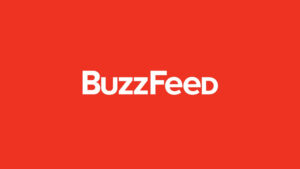Ripping off the plaster: Job cuts and sustainable journalism

Last week was a terrible week for digital journalists, with well over 1000 job cuts announced across a swathe of the most popular digital publishers. BuzzFeed announced up to 250 job cuts, which seemed to disproportionately hit BuzzFeed UK. Verizon is looking to cut 800 jobs, or 7% of its global workforce after its CEO announced that each of its three strands – which includes its media properties such as Huffington Post and AOL – should be sustainable in their own right. And Gannet cut 20 jobs as part of a restructuring ahead of a rumoured buyout.
Reactions to the cuts have been emotional and frequently incendiary. Media Twitter has been awash with journalists expressing condolences and wishing the best for their peers, with many editors advertising potential positions within their own organisations. On the other side of the spectrum, former BuzzFeed staffer Jason Sweeten used BuzzFeed’s own platform to create a quiz lambasting the organisation for letting so many
editorial staff go, while other BuzzFeed staff publicly called out Jonah Peretti on its own show. BuzzFeed News UK staffers wrote an open letter to Jonah Peretti, which stated:
“Every aspect of the way that these layoffs have been handled so far — from communication to execution to aftermath — has been deeply upsetting and disturbing, and it will take a long time to repair the damage that has been done to our trust in this company.”
I made a quiz for all my friends in BuzzFeed Creative who don’t know if they have a job still.https://t.co/1ri53WezYp
— Jason Sweeten (@jason_sweeten) January 28, 2019
Meanwhile, probably because of BuzzFeed’s complicated reputation as both purveyor of easy-to-produce entertainment content and some of the best journalism of the past few years, the reaction from media business analysts and commentators has been all over the place. Stratechery’s Ben Thompson wrote a piece that reads like a eulogy for the ad-supported internet (on which more later), which received a particularly strong and deplorable response from former editor-in-chief of the MIT Technology Review Jason Pontin:
This makes me want to give up living. Buzzfeed was never “the most important news organization in the world.” Buzzfeed was always stupid. Buzzfeed was always going to fail. The only people who thought otherwise were freetards. https://t.co/xM34SiFFfW
— Jason Pontin (@jason_pontin) January 29, 2019
And, of course, Trump took the opportunity to have a dig at the journalists, demonstrating the tact and empathy that have characterised his time in office.
Those were only a few examples, but everyone has been pitching in on the fate of BuzzFeed after the cuts. Somehow – probably because of its journalistic excellence and the other layoffs – the conversation mutated from specifically about the future of BuzzFeed to being about the future of digital journalism as a whole. Writing for the Guardian, no less, Edward Helmore took a whistlestop tour through the potential of digital publishers to find alternative revenue sources in an article titled ‘Future of digital journalism in question as BuzzFeed and HuffPost lay off 1,000‘.
In reality, as Mathew Ingram pointed out, this is less about the future of digital journalism and more about the future of ad-supported digital content. Journalism is demonstrably being supported at a number of subscription- and membership-based organisations, and while there are still questions about the ramifications of news existing behind paywalls, for a number of big brands journalism has absolutely been thrown a lifeline there. So this debate is less about that and more about free-to-access content of the sort that BuzzFeed seems increasingly loth to pay to produce.
UGC and fan labor are complex issues bc the desire to create often outweighs one’s desire to get paid, and moralizing to amateurs about that hits a brick wall.
But please know, corporations are increasingly desperate to exploit that desire & turn it into a major revenue engine https://t.co/w2Aw1ABO1X
— austin walker (@austin_walker) January 29, 2019
It may seem nitpicky, but it’s an important distinction to make, if only because the conflation of ‘BuzzFeed’ with ‘all digital journalism’ muddies the debate. Moreover, this is more accurately a failure of VC funders to foresee the realities of digital advertising growth, namely that all net growth in the space would inevitably go to the companies that controlled distribution and ad networks, and that the forecast returns on huge investments would be extremely hard to come by. It’s a failure of a lot of people – effectively an entire industry bet the wrong way on scale being enough to pull in a sustainable amount of advertising revenue – but it’s not a signifier of the future of journalism as a discipline. These job cuts are the industry ripping off the plaster as they right-size (i.e. shrink) to match a realistic amount of revenue.
One thing is absolutely certain. The redundancies were absolutely not the fault of the journalists and content creators who are now bearing the cost of that bad bet. The problem is that it’s currently hard to envision a situation in which each of the 1000 people whose jobs were lost will find new roles in an industry still scrambling to find its way forward.
Chris Sutcliffe
Martin Tripp Associates is a London-based executive search consultancy. While we are best-known for our work across the media, information, technology, communications and entertainment sectors, we have also worked with some of the world’s biggest brands on challenging senior positions. Feel free to contact us to discuss any of the issues raised in this blog.